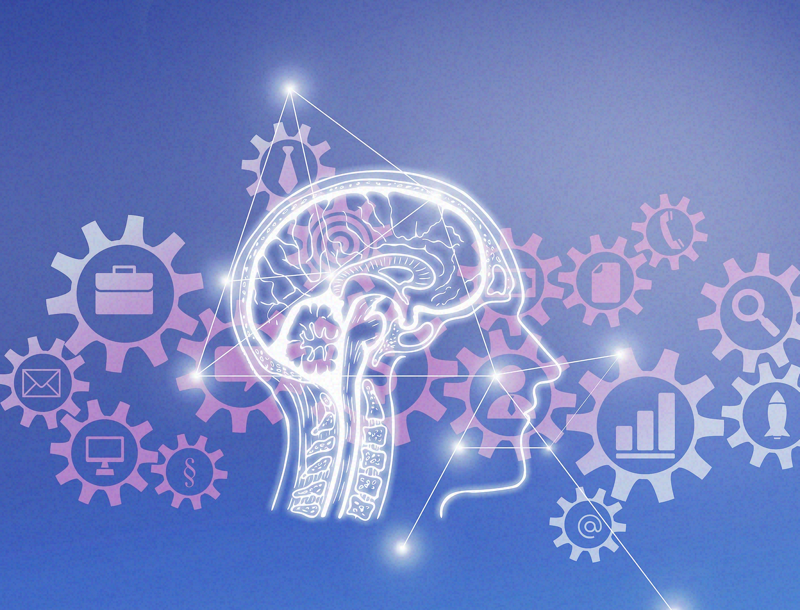It’s been interesting to watch AI evolve over the past decade or so. It’s moved from near ‘space-age’ technology to something that we encounter in everyday life. Exciting things are being done with AI technology, and that’s impacting a variety of industries. Here, we’re going to explore how AI impacts the following industries: eCommerce, Gamedev, eLearning, Healthcare, and Marketing.
AI in Game Development
Game developers can use artificial intelligence technology to develop non-player characters who can adapt, respond, and behave in intelligent ways. These NPCs can become more intelligent throughout the game, and react differently as they ‘learn’ from the player’s movements and choices. The result is a more challenging, varied gameplay experience.
In order to implement AI in non-player characters, developers use decision trees, pathfinding, and other techniques. It takes advanced skills to develop a game using AI, but some of the most engaging games use this technology. These include Grand Theft Auto, Half-Life, Halo, and Dark Forest.
AI in eLearning
Educational technology is the ideal breeding ground for technological advancement. AI can be used to improve learning, create better parent-teacher engagement, even automate tasks for instructors.
The first example of AI in education is the use of AI-driven software for scheduling parent-teacher appointments. Previously, parent-teacher conferences either happened on schedule once or twice a term or when a crisis emerged. AI changes that. Imagine appointment scheduling software that can recognize that a student's grades are just beginning a downward pattern. Teachers and parents can then be notified that it may be a good idea to get together.
Another exciting example of using AI in e-learning is AI dogs as tutors and teaching assistants. These bots can assist younger students with relevant feedback and gentle correction as they develop basic reading and language skills, even learn to interact with their peers. Bots can also assist sick or disabled students with remote learning if they are unable to be in the classroom.
AI in Marketing
Marketing technology can make use of artificial intelligence to automate tasks and allow sales and marketing professionals to focus on tasks that are more mission-critical. Further, AI can be used to get better results from pay per click advertising campaigns via AI-driven A/B testing. Finally, data analytics is a field that is driven by machine learning. These solutions can be used to collect, mine, and refine data about customer behavior and attributes. Then, that information can be used to develop valuable marketing insights.
AI in Healthcare
When it comes to healthcare, it’s really difficult to identify any area or sub-specialty where AI could not or is not useful. AI has been proven to help create better outcomes from the front desk to the surgical theater.
One of the most exciting applications is the use of AI-powered robots to assist with many types of surgery. Bots can help surgeons ensure higher accuracy, execute surgeries with less risk of blood loss or other complications, and have fewer patients that suffer from infections. Ultimately, this will lead to shorter inpatient stays and better recovery times.
Another benefit is the use of AI to create and manage automated medical records. Electronic health records can be recorded and stored in digital form in a way that allows health record technicians to find information quickly and easily, especially when the need is urgent. Further, this makes it easier for customers to view their online records via health portals.
AI in eCommerce
This is an industry that relies quite a bit on data regarding customers, inventory, and sales. In addition, task automation is another desirable benefit. AI can help with these along with sales forecasting and more.
Shopping cart abandonment happens when a customer places items in their car, but never completes the purchase. This occurs for a variety of reasons. Online retailers can use AI to reduce this issue by deploying online chatbots to help customers through the purchase process. Further, predictive analytics can be used to identify circumstances where abandonment is most likely to happen.
AI-driven bots can also be used to answer low to mid-level customer inquiries. Rather than navigating to an FAQ page, customers can chat directly with a bot that will then use Natural Language Processing to respond. This form of conversational interaction is proven to improve customer relationships. As the customer asks more questions, the bot can even curate product recommendations, or recognize when the situation should be escalated to a live customer support agent.
Final Thoughts
Is your industry listed above? If not, AI could still be incorporated into your business model. Talk to us about our AI development experts. There are so many ways that artificial intelligence can improve business processes and increase customer satisfaction. We’ll work with you to find the best possible solution to modernize your business.

